What are the Lessons for Nigeria’s Labour Party as Georgia in the United States Becomes a Battleground State?
On Tuesday, December 6, 2022, Georgians went to the polls for a senatorial runoff contest between the Democratic Party’s Rev. Raphael Warnock and Republican Party’s Herschel Walker. The incumbent, Senator Warnock, prevailed to give the Democrats a 51:49 majority in the upper chamber. Senator Krysten Sinema has since changed her party status from (D) to (I), but it doesn’t affect the balance of power in the senate because Vice President Kamala Harris (D) may vote to break a tie.
Join our WhatsApp ChannelTwo years earlier, Georgians had voted to elect Jon Ossoff and Rev. Warnock as senators in the wake of the election that delivered 12 electoral votes to Joe Biden to give him a 306:232 victory in the electoral college. The US doesn’t choose its president by a national mandate but by electors chosen in each state by a popular vote. America’s Founding Fathers had perhaps sought to avoid the tyranny of majority rule and/or to increase leverage on the executive branch.
In Nigeria, a presidential candidate must receive a popular mandate and at least 25% of votes cast in 24/36 states. The authors of our constitution had perhaps sought to ensure a geographical spread of the mandate to avoid sectionalism. That has proved rather feckless because our incumbent president, Major General Muhammadu Buhari, who complied with these conditions, has turned out to be the most sectional head of state or government Nigeria has ever had. But that’s grist for the mill for another day.
READ ALSO: Joseph Tarka’s Progressive Spirit In Countdown To Nigeria’s 2023 Elections – Albert Ngene
Georgia used to be a red state. It had in the recent past voted reliably for the Republican Party – for president, senate, and house. Same for the Governor’s Office and the Georgia General Assembly. The last time Georgia elected a Democratic governor was Roy Barnes in 1999. Not even Barack Obama’s irresistible force of a vaunted political operation made a dent in Georgia.
Shortly, I will get to Stacey Abrams – and the work she and others have done to begin the transition of Georgia from a Republican stronghold to a state that can be contested by Democrats. But, first, let me give some historical context. Atlanta City, the capital of Georgia, is the emotional and spiritual cradle of the Civil Rights movement; and the epicentre of the political relevance of Black America projected onto the national scene. Reverends Martin Luther King Jr., Ralph Abernathy, Andrew Young, Joseph Lowery, and other men of God laid the spiritual basis for non-violent sociopolitical activism in Atlanta.
The Southern Christian Leadership Conference (SCLC) and the National Association for the Advancement of Colored People (NAACP) were founded in Atlanta to articulate their interests, promote a vision of their place in America, and mobilize their community for political action. When President Lyndon Johnson kept his promise and signed into law the Civil Rights Act of 1964 and Voting Rights Act of 1965, the African American community made its home in the Democratic Party. In 1973, Maynard Jackson was elected as the first African American mayor of Atlanta on the platform of the Democratic Party. The Hartsfield-Jackson Atlanta International Airport is co-named for him. Jackson was succeeded as mayor by Andrew Young who later served as President Jimmy Carter’s US ambassador to the United Nations.
However, the most impactful agency of change and progress out of Atlanta was John Lewis who was elected to the US Congress in 1986 to represent Georgia’s 5th Congressional District – Atlanta City and parts of the counties of Fulton, Dekalb, Clayton, and Cobb. He remained in Congress until his death in 2020. He had begun his vocation to public service in 1963 as a student leader and organizer for the March on Washington. Two years later, he led a group of students across the Edmund Pettus Bridge in Selma on their way to Montgomery, Alabama, for a civil rights march. At Selma, he earned his red badge of courage – when a policeman struck him on the head with a baton and split open his skull. When he healed he ran a campaign to register voters for the non-violent movement. ACLU cites him thus:
“Under his leadership, the Voter Education Project (VEP) transformed the nation’s political climate by adding nearly four million minorities to the voter rolls.”
The logic of non-violent political action was that you needed to participate and make progress from within the system. So John Lewis went to Washington, D.C., to continue the fight for legislation that improved the life of the people of his community. In a manner of speaking, John Lewis preceded Barack Obama as a career politician who went to public office by way of community organizing. We can take that a little further and say Stacey Abrams follows in both their footsteps.
Stacey Abrams has lost two gubernatorial elections to the incumbent governor, Brain Kemp – in 2018 and 2022. If you take that at face value you will miss entirely the critical impetus that defines her political purpose. She was elected as the minority leader of the Georgia House in 2011. From that vantage point, she plotted a course that led directly to the successes of the Democratic Party, for as Dahlia Lithwick wrote in Slate:
“At the minimum, she was helping voters to understand that if electoral politics are a reality show, it is the voter herself who is the star.”
Stacey Abrams founded Fair Fight Action and PeachVote.com and worked to expand the voter base by registration of new prospects. Her community organizers made up of women, men of goodwill, youth, and college students embarked on drives, grassroots enlightenment and education, and provided legal and human resources to counter voter objections and apathy. During the general elections in 2020 and the midterms in 2022, the emphasis shifted to Get Out The Vote.
To be fair, Stacey Abrams was not the only act in town. LaTosha Brown’s Black Voters Matter and Nse Ufot’s New Georgia Project, among other voter support platforms, were part of this great progressive political action. These groups may have worked separately but they were united in purpose. It’s safe to say they reached more people than would otherwise have been the case. They reached the people at church, on the radio, by phone, SMS, and email.
Perhaps the most colourful of the agencies of effective political action in Atlanta are the rappers and hip-hop moguls. Delece Smith Barrow reminds us in Politico that Ludacris was instrumental in bringing Fela!, the Broadway musical, to Atlanta in 2013. Fela means sociopolitical awareness. Since then T.I., Killer Mike, Offset, and other rappers who were raised or are based in Atlanta have made their opinions known on issues and/or about candidates; and they have leveraged their influence on the young at live events and on social media.
Finally, it is important to conjoin in our minds youth involvement in these campaigns with the new reality of retail digital politics. As the lines between popular culture, advertising, and influence peddling become blurred so have opportunities arisen for political action. New operatives have harvested these. In the post-pandemic era, remote meetings have become a commonplace and the youth have led the way. They meet and organize on social media and disseminate messages. Millennials and Gen Z in Georgia have outperformed the demographic national average in the US by 21% to 16% of registered voters who actually turned out to vote.
Taking all of that together has made the difference and helped to turn around the electoral fortunes of the Democratic Party in Georgia. But I speak of Georgia only as a model. Similar changes driven by demographics and increased digital capacity at our fingertips are taking place in Arizona, Texas, and North Carolina. Those were formerly reliable red states. These changes hold a promise and a warning for Nigeria’s Labour Party because while there may be differences between these states in America and Nigeria the contours of the struggle remain the same.
As Lee Yuan Yew articulated it: “The role of government is to equalize opportunities!”
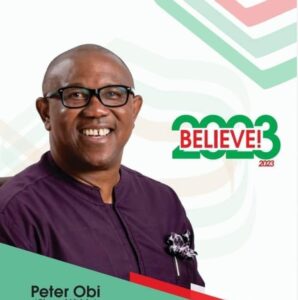
Peter Obi promises that and more!
Peter Obi is not new to politics. Under the platform of the All Progressives Grand Alliance (APGA) he had served Anambra state as governor at various stints between 2006 and 2014. He later joined the Peoples Democratic Party (PDP) which he left earlier this year ahead of the party’s primaries to choose a presidential flag bearer because of his ethical disinclination to bribe delegates. His subsequent migration to the Labour Party disrupted the business as usual M. O. of our career politicians such as Alhaji Atiku who emerged as flag bearer for PDP; and Senator Bola Tinubu for the All Progressives Alliance. Both men used all the old and dirty tricks in the book of horse traders to emerge triumphant.
So there comes Peter Obi on the scene with as audacious an entry gambit in Nigeria’s history of presidential elections as there ever was, and he begins to speak in an authentic and new way:
“When I hear people say we have no structure, my answer is simple. The one hundred million Nigerians that live in poverty will be the structure. The thirty-five million Nigerians who don’t know where the next meal will come from will be the structure!”
Without firing the proverbial warning shot, he expanded the voter base like political action groups in the US. He followed that up by tapping into the organic power of the silent majority: The people who had been disregarded for far too long by a malevolence of bad governance found a champion in Peter Obi. They rallied around him. Like a self-motivating organism on autopilot, these “Obi-dients” as they called one another, organised and mobilised on social media and then turned up for rallies on the streets of Nigeria’s state capitals. Finally, Obi-dents ran a massive registration drive for Permanent Voter Cards. They did all these without formal platforms like Peach Vote, Black Voters Matter, or Fair Fight Action. At the end of the extended registration exercise, INEC announced that 10.5 million new voters had applied for PVC.
That is an impressive extension of the voter base when reviewed under the context of Nigeria’s 2019 presidential election. APC’s Major General Buhari was reelected with 15,191,847 votes. Alhaji Atiku Abubakar lost with 11, 262,978 votes. INEC announced also that 84% of the new registered voters are under 35. The preferred candidate of this demographic is Peter Obi and they are fired up if their social media declamations and turnout at Labour Party rallies are anything to go by. In 2019, the turnout to vote was >35%. But as the palpable enthusiasm for this three-way contest tees up, that number could be doubled.
“Barack Obama is America’s … first digital, database marketing, and social networking president.” – Marketing Week
So far so good for the people’s non-violent nationwide socio-political action to enthrone good governance. But I have my concerns which I hope the Labour Party should address with the urgency it deserves. After all is said and done Barack Obama had the Democratic Party apparatus. In contrast, the Labour Party is running an autonomous but amorphous, free style presidential campaign for Peter Obi reliant on a heavily motivated electorate running their own operational centres in what is essentially a network marketing organogram. Will that be enough to give Peter Obi victory on February 25, 2023?
Please let’s not wait for time to tell us.






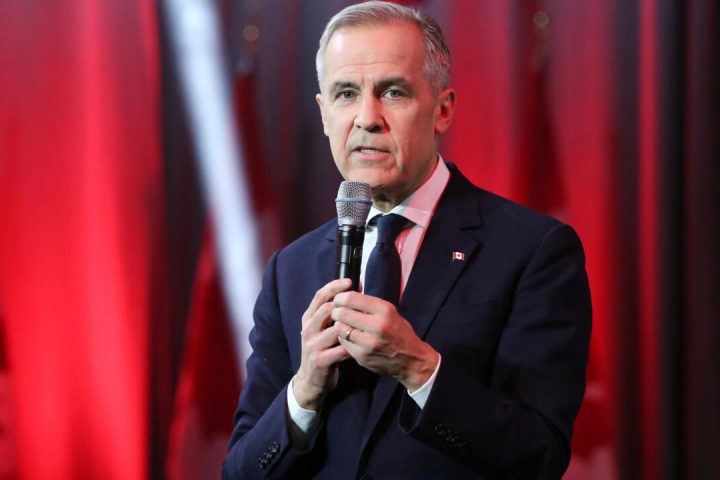





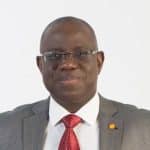

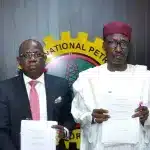
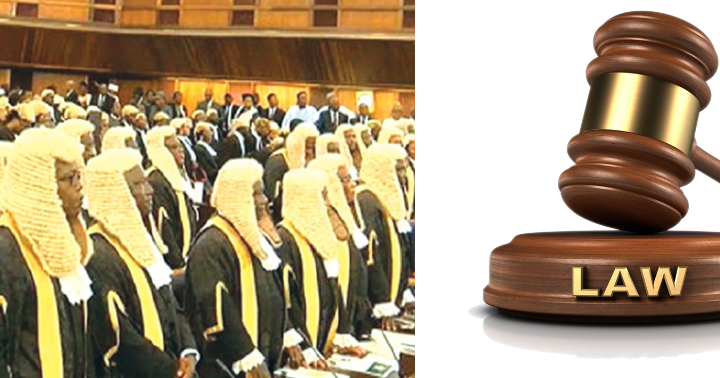
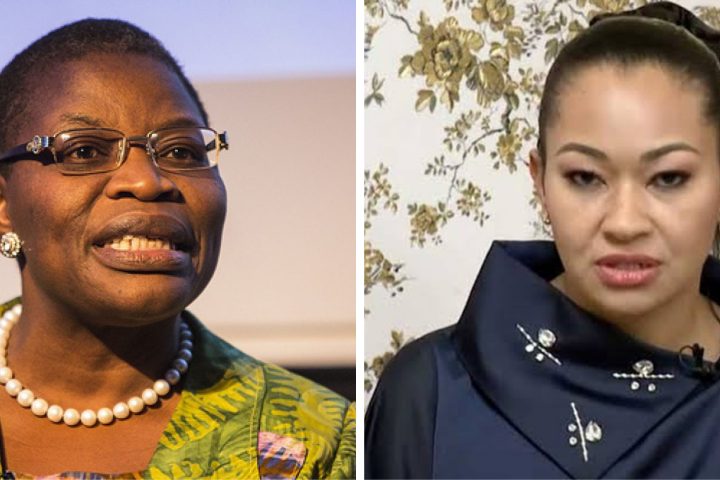
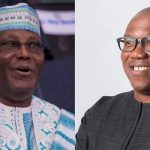
Follow Us